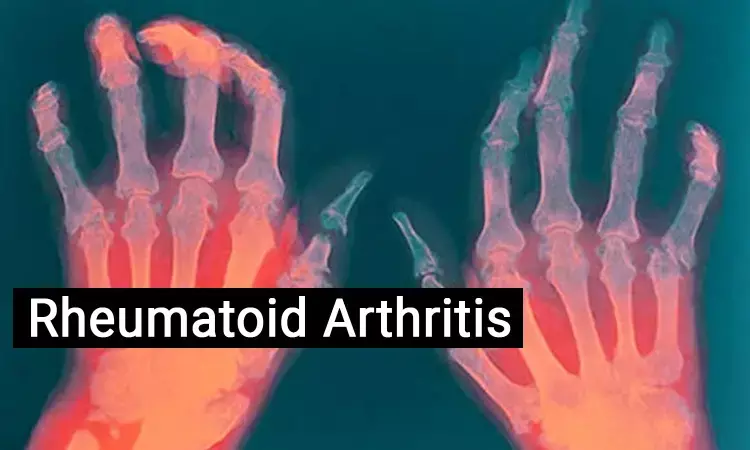- Home
- Medical news & Guidelines
- Anesthesiology
- Cardiology and CTVS
- Critical Care
- Dentistry
- Dermatology
- Diabetes and Endocrinology
- ENT
- Gastroenterology
- Medicine
- Nephrology
- Neurology
- Obstretics-Gynaecology
- Oncology
- Ophthalmology
- Orthopaedics
- Pediatrics-Neonatology
- Psychiatry
- Pulmonology
- Radiology
- Surgery
- Urology
- Laboratory Medicine
- Diet
- Nursing
- Paramedical
- Physiotherapy
- Health news
- Fact Check
- Bone Health Fact Check
- Brain Health Fact Check
- Cancer Related Fact Check
- Child Care Fact Check
- Dental and oral health fact check
- Diabetes and metabolic health fact check
- Diet and Nutrition Fact Check
- Eye and ENT Care Fact Check
- Fitness fact check
- Gut health fact check
- Heart health fact check
- Kidney health fact check
- Medical education fact check
- Men's health fact check
- Respiratory fact check
- Skin and hair care fact check
- Vaccine and Immunization fact check
- Women's health fact check
- AYUSH
- State News
- Andaman and Nicobar Islands
- Andhra Pradesh
- Arunachal Pradesh
- Assam
- Bihar
- Chandigarh
- Chattisgarh
- Dadra and Nagar Haveli
- Daman and Diu
- Delhi
- Goa
- Gujarat
- Haryana
- Himachal Pradesh
- Jammu & Kashmir
- Jharkhand
- Karnataka
- Kerala
- Ladakh
- Lakshadweep
- Madhya Pradesh
- Maharashtra
- Manipur
- Meghalaya
- Mizoram
- Nagaland
- Odisha
- Puducherry
- Punjab
- Rajasthan
- Sikkim
- Tamil Nadu
- Telangana
- Tripura
- Uttar Pradesh
- Uttrakhand
- West Bengal
- Medical Education
- Industry
New breakthrough in treatment of rheumatoid arthritis

People with Rheumatoid Arthritis (RA) could soon benefit from a new drug treatment that not only suppresses inflammation but also significantly reduces patient reported pain scores. Otilimab is a monoclonal antibody, biologic drug, which targets and suppresses the inflammatory cytokine GM-CSF.
In a multicentre, dose-ranging trial, led by Professor Chris Buckley at the Universities of Oxford and Birmingham, and sponsored by the Pharmaceutical company GSK, researchers explored the clinical effects of otilimab to prevent inflammation, tissue damage and pain in people with RA.
The study evaluated the effects of five doses of otilimab (22·5 mg, 45 mg, 90 mg, 135 mg, or 180 mg) versus a placebo. 222 patients with active RA received weekly subcutaneous injections for 5 weeks, which was reduced to every other week for one year. A range of patient reported outcomes for function and pain were measured. Otilimab treatment led to a rapid reduction in tender and swollen joints but patients also reported very significant improvements in pain scores.
Professor Buckley, Kennedy Professor of Translational Rheumatology at the Universities of Oxford and Birmingham said: "The assumption has always been that if drugs suppress inflammation, they will also help suppress pain, but this hasn't always been the case. Now, for the first time we are seeing a biologic therapy, the first in the rheumatoid space, that offers two for the price of one. It's suppressing inflammation, but it's also helping pain, and that's very important to the patient."
The trial was novel in that it offered an escape arm for patients receiving the placebo or in whom the drug dose to which they were randomised did not achieve a reduction in their disease activity. "One of the problems with placebo arms is it's hard to get people to go into the study if they know they might get a dummy drug ," said Prof. Buckley. "In this trial, if a patient wasn't seeing improvements after 12 weeks they were automatically transferred to the highest dose of otilimab at 180 mg and we were able to then see the improvements."
This study helped lay the infrastructure groundwork for the CATALYST Trial, also a collaboration between Oxford and Birmingham, which is measuring the effectiveness of GM- CSF and another anti-inflammatory drug (anti TNF) in the treatment of COVID-19.
https://www.thelancet.com/retrieve/pii/S2665991320302290
Hina Zahid Joined Medical Dialogue in 2017 with a passion to work as a Reporter. She coordinates with various national and international journals and association and covers all the stories related to Medical guidelines, Medical Journals, rare medical surgeries as well as all the updates in the medical field. Email: editorial@medicaldialogues.in. Contact no. 011-43720751
Dr Kamal Kant Kohli-MBBS, DTCD- a chest specialist with more than 30 years of practice and a flair for writing clinical articles, Dr Kamal Kant Kohli joined Medical Dialogues as a Chief Editor of Medical News. Besides writing articles, as an editor, he proofreads and verifies all the medical content published on Medical Dialogues including those coming from journals, studies,medical conferences,guidelines etc. Email: drkohli@medicaldialogues.in. Contact no. 011-43720751


